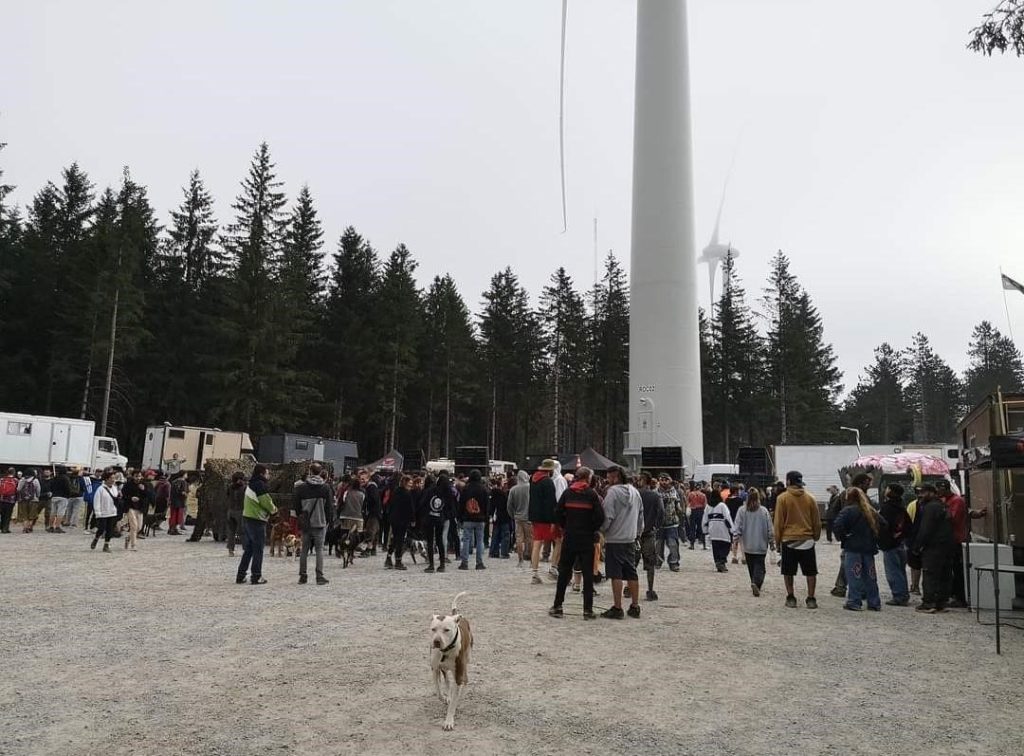A short recap of the history of free parties
How have free parties established themselves in European culture, and how cracking down on free parties has made them stronger?
by Ppk23

Free parties have a complex and tormented story.
First and foremost, free parties are illegal parties – they can sometimes be legal if they respect certain rules – that usually happen outdoors, on the initiative of a group named a “sound system”, composed of artists, musicians, technicians, circus performers and other people, all gathered in order to set up musical events around tekno culture (techno or tekno, the spelling depends on the musical genre/style played). They are political events that entail rules and values like respect, self-care, solidarity, multiculturalism, and obviously the love of music. There are different genres and musical styles, from techno to hardcore, including acid, gabber or tribal house music. DJs come to play their set and share a great moment with the audience.
In fact, these parties were born in England in the second half of the 1980s, as a form of protest against the repressive policy of the Prime Minister Margaret Thatcher. In that period, acid house found its way into the English clubs directly from Detroit, United States, the cradle of techno. But “the Iron lady” tried to stop this new musical culture by passing a law in 1987 that forced clubs to close their doors at 2 am. That repressive law and the industrial crisis led to the beginning of rave parties, as they were called in this context, that took place in abandoned sheds all over the kingdom. Those parties were illegal and limitless. The goal was to create free moments in secret places, meet strangers without constraints and societal norms. The sound was louder and harder than in a club, ravers were dressed as they wished and parties continued until the next day.
Then, in 1990 one of the first techno sound systems in London, the “Spiral tribe 23”, appeared. They made their first event that year, and began to travel all around the country, becoming nomads. In 1994 they were judged in a trial for “conspiracy to cause public nuisance” and even if they won the case, they decided to leave England and move to France. There, they organized parties, bringing on their own culture, norms and rules in France as well as the Czech Republic with the first teknival. They wanted to create “free” parties because they thought people had to enjoy their nights and dance freely, without trying to fit into societal standards. “Free” of course doesn’t mean they’re free of charge but that they get rid of some limits and control. They have implanted values, such as respect, nomadism and a free attitude, and have marked the beginning of the free party culture. Thanks to them, parties have been called “Free parties” since 1995.
A year later came the “Heretik” sound system, the first really famous French group, which revolutionized the history of free parties. Indeed, in 2001, they organized a big free party in an abandoned swimming pool in Paris, the Molitor. 2000 ravers came illegally during the night to celebrate one of the most famous free parties ever in the heart of the city. Moreover, the event took a long time for preparation, something like several weeks. The organizers had to disguise themselves to pass for workers in order to clean the spot and install the equipment before ravers came. The free party then became “pirate”, even if it was already a protest movement.
But the French government didn’t like it, and in 2001 member of the French Parliament Thierry Mariani passed a law, “l’amendement Mariani”, which required the declaration of events in a prefecture in order to suppress free parties. Nobody took heed of it and free parties and tekno culture became a political fight. So a lot of sound systems were formed and settled in France, traveling all around the world in the summer to make music and dance together in different places.
Moreover, the free party movement is more and more recognized and defended. Some French lawyers have specialized in the survival of free parties, like Marianne Rostan who has been a lawyer in Paris since 2014. She notably denounced the terrible violence used by the police in 2021 at the Redon free party, where a lot of equipment was destroyed, and especially where a 22-year-old man lost his hand as he was simply defending himself in the fight (the case was dismissed). There are also some associations like Techno+ which focus on safety and prevention in parties by proposing chill spots on the sites and harm-reduction policies. They fight against the government to defend free parties and their values. There is also a legal support fund for sound systems, the “Fonds de Soutien aux Sound Systems” that allows organizers to survive thanks to donations.
In the span of 30 years free parties were invented, created and repressed, but they continue to evolve and survive thanks to a large community, their values and external help. Free parties will never die because no one can stop people from dancing.
SOURCES :
- https://www.opnminded.com/2017/02/17/retour-debut-raves-free-parties-angleterre.html
- https://www.20minutes.fr/arts-stars/culture/2304067-20180708-video-rave-fait-toujours-rever-comment-margaret-thatcher-origine-raves-free-parties
- https://unitewfree.wordpress.com/spiral-tribe/
- https://fr.wikipedia.org/wiki/Spiral_Tribe
- https://mix-vinyl.com/heretik/
- https://www.leparisien.fr/paris-75/2-000-ravers-envahissent-la-piscine-molitor-16-04-2001-2002102404.php
- https://technoplus.org/mariani-lamendement-scelerat/
- https://lemans.maville.com/actu/actudet_-rave-a-redon-la-destruction-du-materiel-inadmissible-et-illegal-selon-une-avocate-_fil-4692007_actu.Htm
- https://www.leparisien.fr/faits-divers/main-arrachee-lors-dune-free-party-a-redon-la-plainte-de-la-victime-classee-sans-suite-12-03-2022-RMH2DSFTOZGHLK5RMZPXRIS6LY.php
- https://technoplus.org/
- https://www.traxmag.com/comment-le-fonds-de-soutien-aux-soundsystems-defend-les-free-parties-face-a-la-repression/